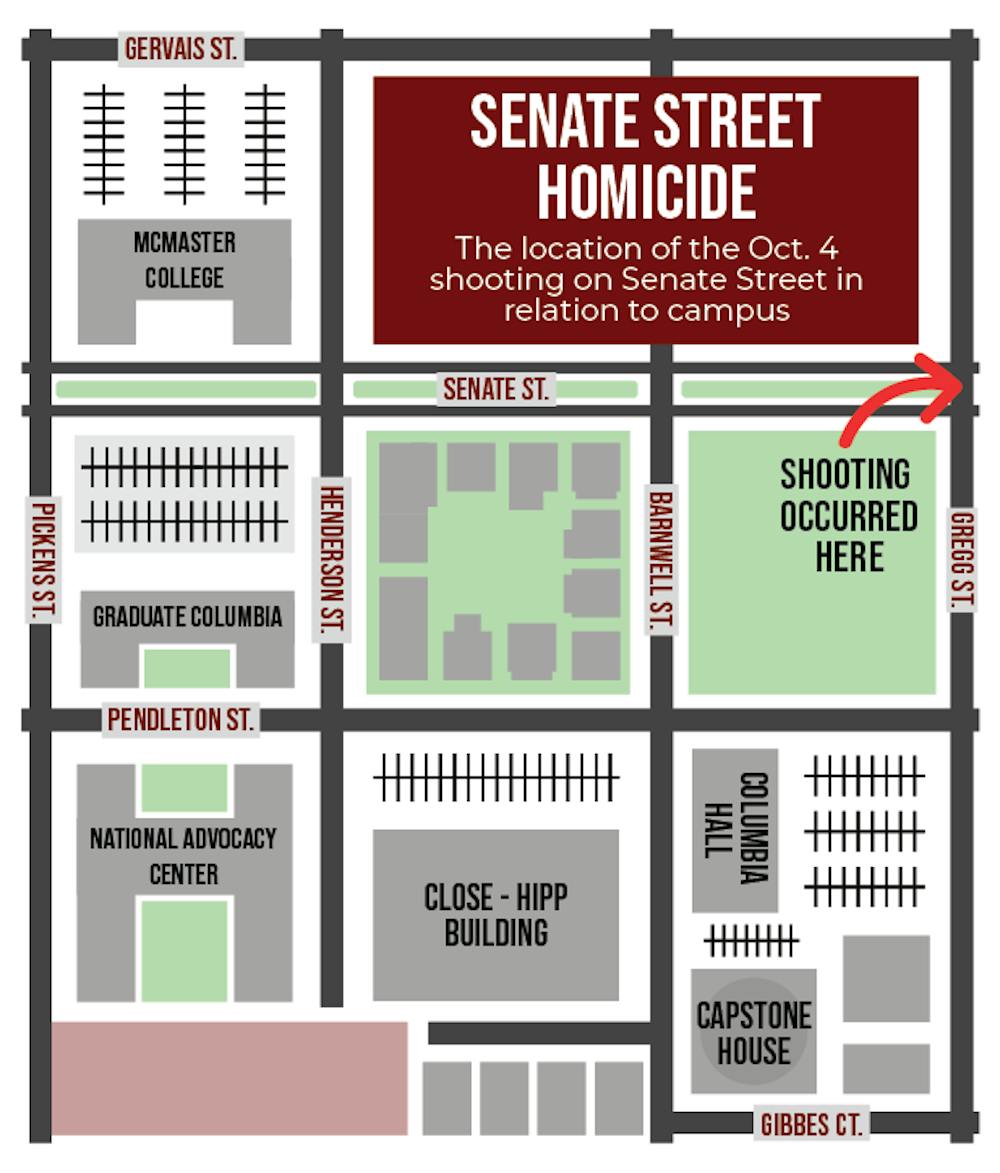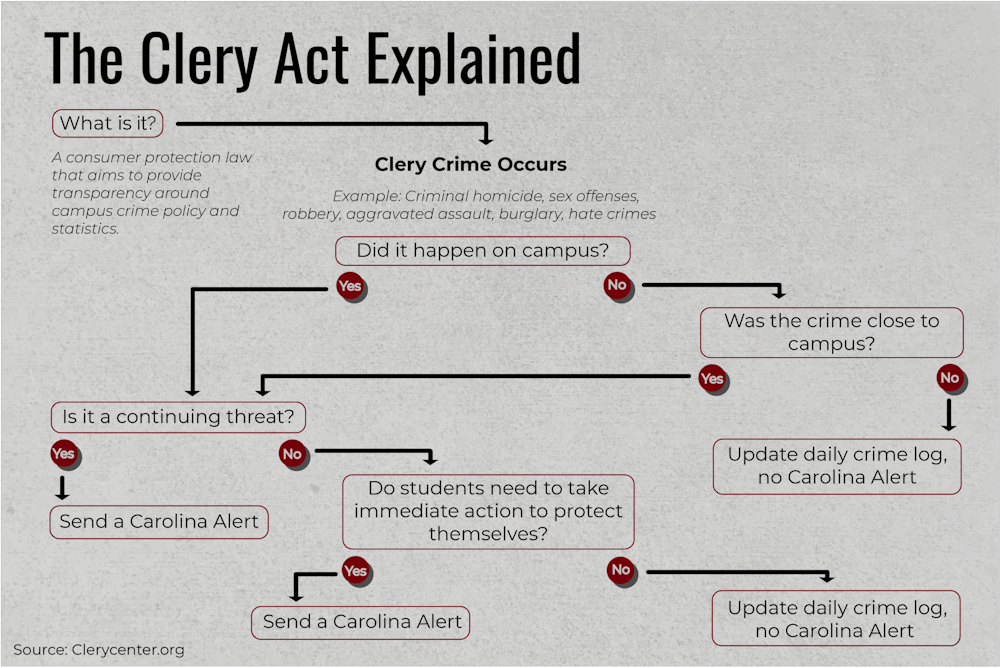A USC student was arrested last month on charges of homicide, armed robbery and possessing a weapon during a violent crime that occurred on Oct. 4. The incident left one man dead near the McMaster School of Visual Art and Design and Columbia Hall.
USCPD considered the suspect in the homicide, first-year transfer student Zachery Williams, to be “armed and dangerous” before he was arrested on Oct. 7.
However, USCPD chose not to send a Carolina Alert text message to students because they are not required in situations that have “already occurred and that we don't believe is currently a risk,” according to university spokesperson Jeff Stensland.
The U.S. Department of Education regulates when universities are required to notify students about crime happening on or near campus by applying the Clery Act.
The Clery Act requires universities to provide both timely warnings and emergency notifications to students in the event of certain crimes on campus or “reasonably contiguous” to campus. USC’s system to notify students in the event of a Clery Crime is through Carolina Alert text messages, Stensland said.
Clery Crimes include murder and manslaughter, sex offenses, robbery, aggravated assault and more, USCPD reported in its 2019 Annual Security and Fire Safety Report.

“If the university considered Zachery Williams to be armed and dangerous, because he was a student, because the crime was committed so close to campus and because he was on the loose, the [Carolina Alert] should have been activated,” Christian Stegmaier, a local attorney at Collins & Lacy, said. “It's almost akin to an active shooter.”
Stegmaier said USC did misstep by not issuing a Carolina Alert.
“I think any reasonable reader of the statute would say a murder committed within a block of the university is probably something, under the Clery Act, that should trigger an alert to campus,” Stegmaier said.
Joseph Lento, an attorney at the Lento Law Firm, also said he believed the Clery Act should have required the university to send out a Carolina Alert.
“In terms of best practices, yes, it seems like there would be no question that it would be best for and appropriate — and not only best and appropriate but, arguably, required of the school to provide that timely notice,” Lento said.
Stensland disagreed and said he does not believe a Carolina Alert would have been beneficial. He said USCPD had a “high confidence” that Williams was not on campus or going to in-person classes.
“Sending out a text message to students … didn't make, really, any sense because we're not requiring students to do anything different or to take any type of action,” Stensland said.
Stegmaier said the university should have erred on the side of “commission versus omission.”
“The decision line for the university is, is this something that, if you were a student or a faculty member, would you rather know than not know?" Stegmaier said. "I think the answer, in more cases than not, if you ask any given student who's a resident at the university or a faculty member who's teaching in any of these buildings, is they'd rather know.”
While the university did not send out a Carolina Alert, it did post a crime bulletin that documented the incident. Students can subscribe to get push notifications when USCPD posts crime bulletin updates on its Twitter and Facebook pages.
“It is not realistic that we can send out text messages on every crime that may occur on- or off-campus," Stensland said. "The biggest reason why we don't do that is 'cause we don't want it to become white noise, and there is a risk and a danger to that, to where, when something really serious is happening, and we really need people to take action, we don't want people ignoring text messages."
If someone believes their school violated the Clery Act, they can file a complaint with the Clery Act Compliance Division within the U.S. Department of Education, Lento said.
“There are ways to keep a school accountable,” Lento said. "If you hit them in their pocketbooks, that’s one way to keep a school in check in terms of doing ... what it's obligated to do."
The University of North Carolina reached a $1.5 million settlement with the U.S. Department of Education for violating the Clery Act earlier this year, The Daily Tar Heel reported.
“Having heard that the school didn't [alert students], like, on the one hand, it is troubling, but on the other hand, it's not surprising because, again, schools make missteps on a daily basis,” Lento said.

